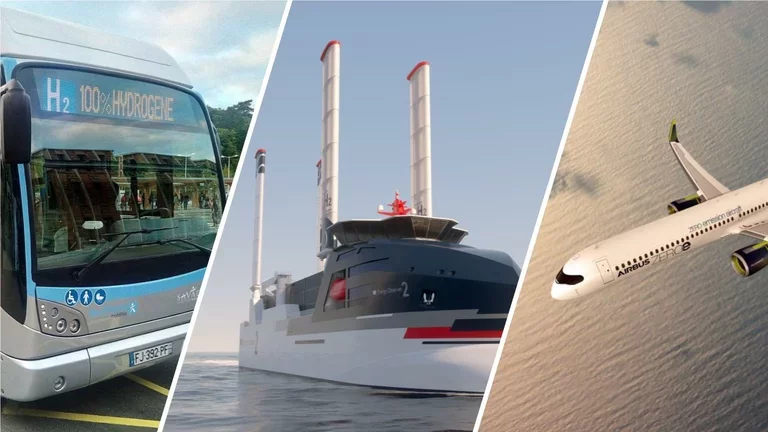Hydrogen: from vision to societal project for a sustainable future
Published on February 11, 2022

As he passes on the torch at the head of the Hydrogen Council, which he has co-chaired since its launch, Benoît Potier, Chairman & CEO of Air Liquide looks back on this groundbreaking initiative that ushered in a new phase in the emergence of the hydrogen society of the future.
A groundbreaking alliance
In the beginning there were 13 of us: 13 international business leaders who met at the World Economic Forum in January 2017. We shared a common vision of the major role that hydrogen can play in bringing about a successful transition to a low-carbon society. This vision was not universally shared at the time. Nevertheless, we were determined to pursue it because we knew it was the right approach. We were very familiar with this particular molecule: Air Liquide had been producing, transporting and delivering hydrogen to several industrial customers for 50 years. In light of this pioneering expertise, we were convinced that hydrogen had a key role to play in terms of the transition to a low-carbon economy. At the nexus between several forms of energy, hydrogen was the missing piece in the energy transition puzzle. Over and above technological innovations and solutions, a new ecosystem, a hydrogen society, needed to be built. We knew that we could not do it alone. So, together, we created the Hydrogen Council.
The beginning of a global transition
Through this Council, we created a unifying momentum to mobilize industry, investors and public decision-makers around a common goal. And today, the results are there for all to see: the Hydrogen Council has become a force to be reckoned with. Its studies and reports are used as a reference by international institutions in the area of new energies. But, most importantly, its impact can be measured by the centrality of hydrogen in post-Covid stimulus plans and government decarbonization strategies. Across 30 countries, more than 100 billion euros of investment in hydrogen has been announced. This is unprecedented. Hydrogen has really taken off. By 2050, it could account for up to 22% of total global energy consumption.
I believe this venture is a perfect illustration of the need for cooperation between stakeholders to meet a global challenge such as climate change. Through the Hydrogen Council, companies from a wide range of sectors — energy companies, hydrogen producers, equipment manufacturers, car manufacturers and many others — have demonstrated that they can work together towards a common goal.
Concrete challenges for the decade ahead
Everyone now needs to play their part in building this hydrogen society. First of all, companies — from power producers to end-users in transportation and industry — must focus their efforts where they can make a real difference. We all have complementary areas of expertise. Each company needs to bring to bear the best of its know-how in its field. Investors, for their part, have a key role to play in financing these transformational changes on a massive scale and in spreading the associated risks. Finally, governments must provide investors and companies with long-term clarity regarding their hydrogen strategy: the development of a hydrogen society depends on their ability to draft and harmonize relevant regulations and to act in concert to stimulate supply and demand.
I am confident that we will accomplish our goal. The course has now been set and we are united in our will to succeed. I am honored to be handing over to Mr. Yoshinori Kanehana, Chairman of Kawasaki Heavy Industries, as the new co-chairman of the Hydrogen Council, and I am confident that he will ensure that we continue to keep up this momentum. I shall also continue to work for the Council as its official representative in Europe.
Together, let's make the 2020s the hydrogen decade.
This message was initally posted on LinkedIn.
Pictures: Ⓒ Nico De Pasquale Photography, Airbus 2021